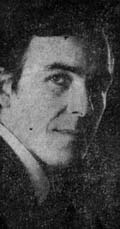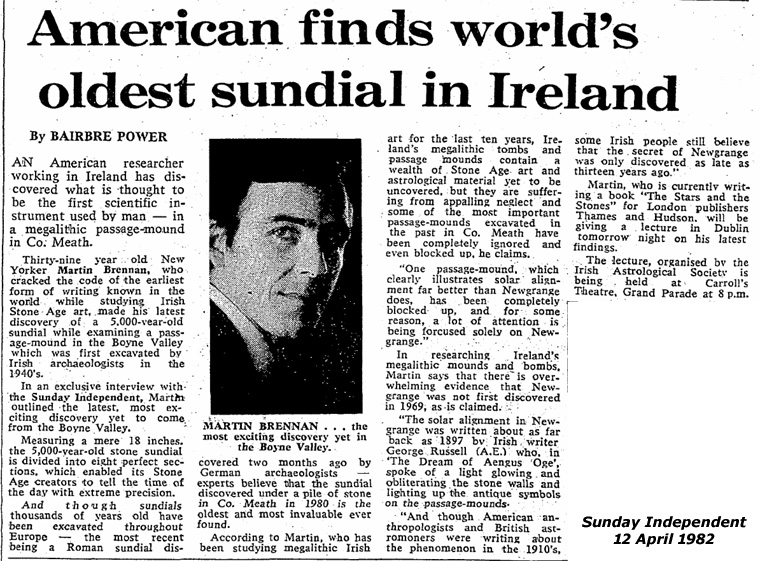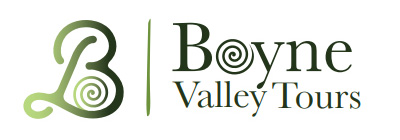American finds world's oldest sundial in Ireland
 An
American researcher working in Ireland has discovered what is thought to be the first
scientific instrument used by man, in a megalithic passage-mound in County Meath.
An
American researcher working in Ireland has discovered what is thought to be the first
scientific instrument used by man, in a megalithic passage-mound in County Meath.
Thirty-nine year old New Yorker Martin Brennan, who cracked the code of the earliest form of writing known in the world while studying Irish Stone Age art, made his latest discovery of a 5,000-year old sundial while examining a passage-mound in the Boyne Valley which was first excavated by Irish archaeologists in the 1940's.
In an exclusive interview with the Sunday Independent, Martin outlined the latest, most exciting discovery yet to come from the Boyne Valley.
Measuring a mere 18 inches, the 5,000-year-old stone sundial is divided into eight perfect sections, which enabled its Stone Age creators to tell the time of the day with extreme precision.
And though sundials thousands of years old have been excavated throughout Europe the most recent being a Roman sundial discovered two months ago by German archaeologists, experts believe that the sundial discovered under a pile of stone in Co. Meath in 1980 is the oldest and most invaluable ever found.
According to Martin, who has been studying megalithic Irish art for the last ten years, Ireland's megalithic tombs and passage mounds contain a wealth of Stone Age art and astrological material yet to be uncovered, but they are suffering from appalling neglect and some of the most important passage-mounds excavated in the past in Co. Meath have been completely ignored and even blocked up, he claims.
"One passage-mound, which clearly illustrates so far alignment far better than Newgrange does, has been completely blocked up, and for some reason, a lot of attention is being focused solely on Newgrange."
In researching Ireland's megalithic mounds and tombs, Martin says that there is overwhelming evidence that Newgrange, was not first discovered in 1969, as is claimed.
"The solar alignment in Newgrange was written about as far back as 1897 by Irish writer George William Russell (Æ) who, in "A Dream of Angus Oge", spoke of a light glowing and obliterating the stone walls and lighting up the antique symbols on the passage-mounds.
"And though American anthropologists and British astronomers were writing about the phenomenon in the 1910's, some Irish people still believe that the secret of Newgrange was only discovered as late as thirteen years ago."
Martin, who is currently writing a book The Stars and the Stones for London publishers Thames and Hudson, will be giving a lecture in Dublin tomorrow night on his latest findings.
The lecture, organised by the Irish Astrological Society is being held at Carroll's Theatre, Grand Parade at 8p.m.
by Bairbre Power - Sunday Independent 18 April 1982

A Dream of Angus Oge
by George William Russell (Æ)The day had been wet and wild, and the woods looked dim and drenched from the window where Con sat. All the day long his ever restless feet were running to the door in a vain hope of sunshine. His sister, Norah, to quiet him had told him over and over again the tales which delighted him, the delight of hearing which was second only to the delight of living them over himself, when as Cuculain he kept the ford which led to Ulla, his sole hero heart matching the hosts of Meave; or as Fergus he wielded the sword of light the Druids made and gave to the champion, which in its sweep shore away the crests of the mountains; or as Brian, the ill-fated child of Turann, he went with his brothers in the ocean-sweeping boat farther than ever Columbus traveled, winning one by one in dire conflict with kings and enchanters the treasures which would appease the implacable heart of Lu.
He had just died in a corner of the room from his many wounds when Norah came in declaring that all these famous heroes must go to bed. He protested in vain, but indeed he was sleepy, and before he had been carried half-way to the room the little soft face drooped with half-closed eyes, while he drowsily rubbed his nose upon her shoulder in an effort to keep awake. For a while she flitted about him, looking, with her dark, shadowy hair flickering in the dim, silver light like one of the beautiful heroines of Gaelic romance, or one of the twilight, race of the Sidhe. Before going she sat by his bed and sang to him some verses of a song, set to an old Celtic air whose low intonations were full of a half-soundless mystery:
Over the hill-tops the gay lights are peeping;
Down in the vale where the dim fleeces stray
Ceases the smoke from the hamlet upcreeping:
Come, thou, my shepherd, and lead me away.
"Who's the shepherd?" said the boy, suddenly sitting up.
"Hush, alannah, I will tell you another time." She continued still more softly:
Lord of the Wand, draw forth from the darkness,
Warp of the silver, and woof of the gold:
Leave the poor shade there bereft in its starkness:
Wrapped in the fleece we will enter the Fold.
There from the many-orbed heart where the Mother
Breathes forth the love on her darlings who roam,
We will send dreams to their land of another
Land of the Shining, their birthplace and home.
He would have asked a hundred questions, but she bent over him, enveloping him with a sudden nightfall of hair, to give him his good-night kiss, and departed. Immediately the boy sat up again; all his sleepiness gone. The pure, gay, delicate spirit of childhood was darting at ideas dimly perceived in the delicious moonlight of romance which silvered his brain, where may airy and beautiful figures were moving: The Fianna with floating locks chasing the flying deer; shapes more solemn, vast, and misty, guarding the avenues to unspeakable secrets; but he steadily pursued his idea.
"I guess he's one of the people who take you away to faeryland. Wonder if he'd come to me? Think it's easy going away," with an intuitive perception of the frailty of the link binding childhood to earth in its dreams. (As a man Con will strive with passionate intensity to regain that free, gay motion in the upper airs.) "Think I'll try if he'll come," and he sang, with as near an approach as he could make to the glimmering cadences of his sister's voice:
Come, thou, my shepherd, and lead me away.
He then lay back quite still and waited. He could not say whether hours or minutes had passed, or whether he had slept or not, until he was aware of a tall golden-bearded man standing by his bed. Wonderfully light was this figure, as if the sunlight ran through his limbs; a spiritual beauty was on the face, and those strange eyes of bronze and gold with their subtle intense gaze made Con aware for the first time of the difference between inner and out in himself.
"Come, Con, come away!" the child seemed to hear uttered silently.
"You're the Shepherd!" said Con, "I'll go." Then suddenly, "I won't come back and be old when they're all dead?" a vivid remembrance of Ossian's fate flashing upon him.
A most beautiful laughter, which again to Con seemed half soundless, came in reply. His fears vanished; the golden-bearded man stretched a hand over him for a moment, and he found himself out in the night, now clear and starlit. Together they moved on as if borne by the wind, past many woods and silver-gleaming lakes, and mountains which shone like a range of opals below the purple skies. The Shepherd stood still for a moment by one of these hills, and there flew out, riverlike, a melody mingled with a tinkling as of innumerable elfin hammers, and there, was a sound of many gay voices where an unseen people were holding festival, or enraptured hosts who were let loose for the awakening, the new day which was to dawn, for the delighted child felt that faeryland was come over again with its heroes and battles.
"Our brothers rejoice," said the Shepherd to Con.
"Who are they?" asked the boy.
"They are the thoughts of our Father."
"May we go in?" Con asked, for he was fascinated by the melody, mystery, and flashing lights.
"Not now. We are going to my home where I lived in the days past when there came to me many kings and queens of ancient Eire, many heroes and beautiful women, who longed for the Druid wisdom we taught."
"And did you fight like Finn, and carry spears as tall as trees, and chase the deer through the Woods, and have feastings and singing?"
"No, we, the Dananns, did none of those things–but those who were weary of battle, and to whom feast and song brought no pleasure, came to us and passed hence to a more wonderful land, a more immortal land than this."
As he spoke he paused before a great mound, grown over with trees, and around it silver clear in the moonlight were immense stones piled, the remains of an original circle, and there was a dark, low, narrow entrance leading within. He took Con by the hand, and in an instant they were standing in a lofty, cross-shaped cave, built roughly of huge stones.
"This was my palace. In days past many a one plucked here the purple flower of magic and the fruit of the tree of life."
"It is very dark," said the child disconsolately. He had expected something different.
"Nay, but look: you will see it is the palace of a god." And even as he spoke a light began to glow and to pervade the cave and to obliterate the stone walls and the antique hieroglyphs engraved thereon, and to melt the earthen floor into itself like a fiery sun suddenly uprisen within the world, and there was everywhere a wandering ecstasy of sound: light and sound were one; light had a voice, and the music hung glittering in the air.
"Look, how the sun is dawning for us, ever dawning; in the earth, in our hearts, with ever youthful and triumphant voices. Your sun is but a smoky shadow, ours the ruddy and eternal glow; yours is far way, ours is heart and hearth and home; yours is a light without, ours a fire within, in rock, in river, in plain, everywhere living, everywhere dawning, whence also it cometh that the mountains emit their wondrous rays."
As he spoke he seemed to breathe the brilliance of that mystical sunlight and to dilate and tower, so that the child looked up to a giant pillar of light, having in his heart a sun of ruddy gold which shed its blinding rays about him, and over his head there was a waving of fiery plumage and on his face an ecstasy of beauty and immortal youth.
"I am Angus," Con heard; "men call me the Young. I am the sunlight in the heart, the moonlight in the mind; I am the light at the end of every dream, the voice for ever calling to come away; I am the desire beyond you or tears. Come with me, come with me, I will make you immortal; for my palace opens into the Gardens of the Sun, and there are the fire-fountains which quench the heart's desire in rapture." And in the child's dream he was in a palace high as the stars, with dazzling pillars jeweled like the dawn, and all fashioned out of living and trembling opal. And upon their thrones sat the Danann gods with their sceptres and diadems of rainbow light, and upon their faces infinite wisdom and imperishable youth. In the turmoil and growing chaos of his dream he heard a voice crying out, "You remember, Con, Con, Conaire Mor, you remember!" and in an instant he was torn from himself and had grown vaster, and was with the Immortals, seated upon their thrones, they looking upon him as a brother, and he was flying away with them into the heart of the gold when he awoke, the spirit of childhood dazzled with the vision which is too lofty for princes.
George William Russell (Æ) 1897
Boyne Valley Private Day Tour
 Immerse yourself in the rich heritage and culture of the Boyne Valley with our full-day private tours.
Visit Newgrange World Heritage site, explore the Hill of Slane, where Saint Patrick famously lit the Paschal fire.
Discover the Hill of Tara, the ancient seat of power for the High Kings of Ireland.
Book Now
Immerse yourself in the rich heritage and culture of the Boyne Valley with our full-day private tours.
Visit Newgrange World Heritage site, explore the Hill of Slane, where Saint Patrick famously lit the Paschal fire.
Discover the Hill of Tara, the ancient seat of power for the High Kings of Ireland.
Book Now
Home
| Visitor Centre
| Tours
| Winter Solstice
| Solstice Lottery
| Images
| Local Area
| News
| Knowth
| Dowth
| Articles
| Art
| Books
| Directions
| Accommodation
| Contact

